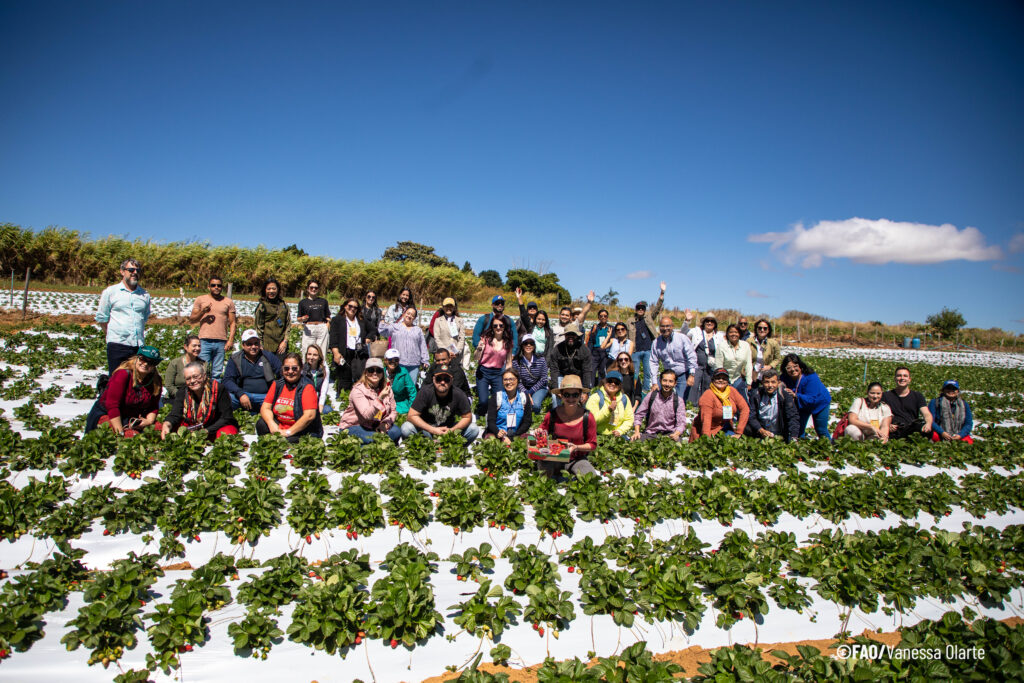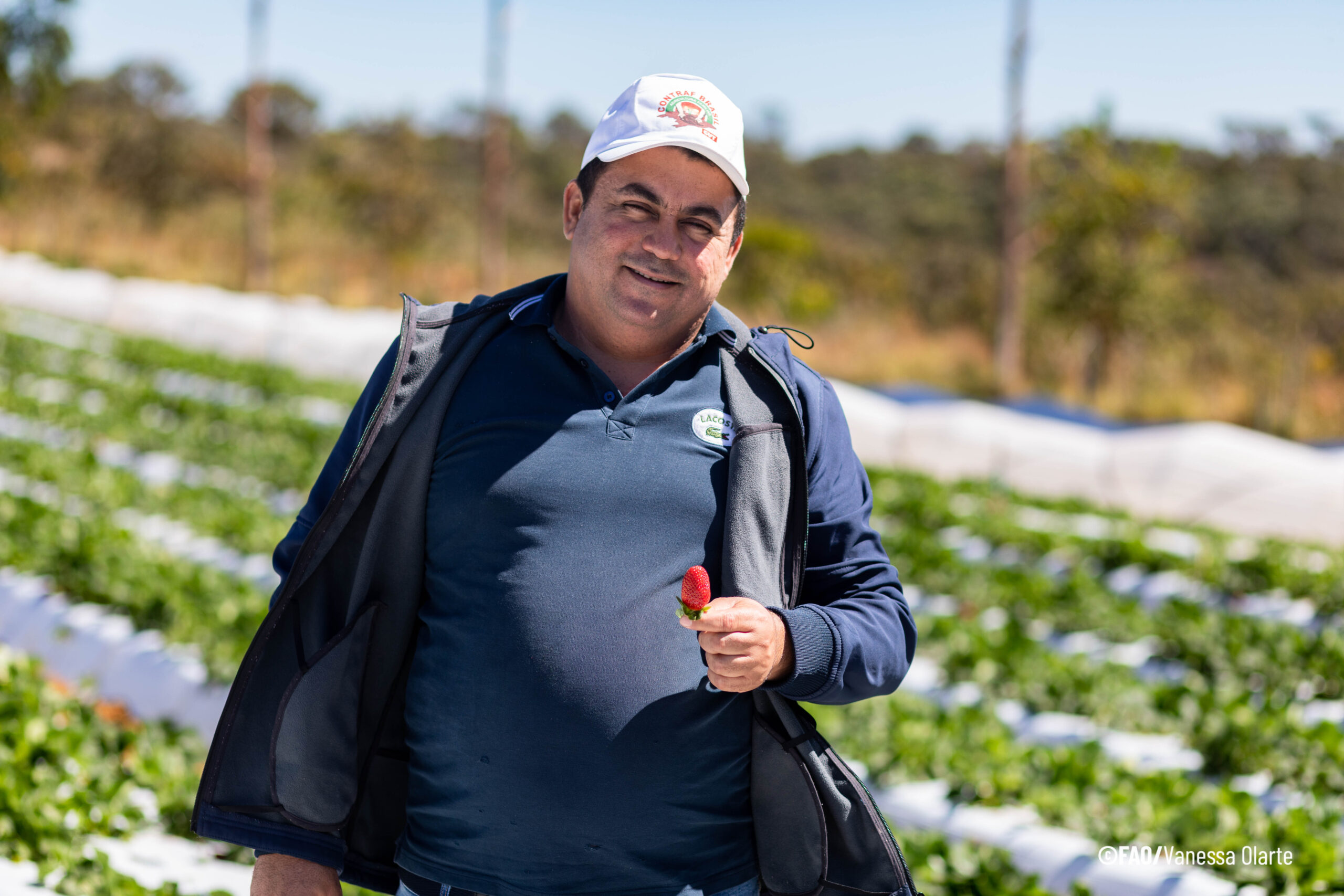Near the center of the capital of Brazil, producer Anaildo Porfírio participates in the National School Feeding Programme, a public policy that has improved the living conditions of several families working in agriculture and increased their income.
Paulo Beraldo and Palova Brito
Brasilia, Brazil, November 2, 2023 – Public purchases of family farming for the National School Feeding Programme (PNAE) have changed the life of family farmer Anaildo Porfírio from Brasília. “This policy has structured and changed the lives of food producers here,” says Anaildo, who is part of the 46 families living in the Chapadinha Settlement, located 32 km from the center of the Brazilian capital.
In May, Anaildo hosted an international mission composed of representatives from 10 Latin American countries who visited his rural property to understand how family farming participation in the PNAE works in practice.
The mission was organized by the school feeding project carried out under the Brazil-FAO International Cooperation Programme.He produces strawberries, carrots, beetroot, lettuce, cabbage and potatoes on his 10-hectare farm. In addition to attending fairs and markets, his production is part of the diet of students in Brasilia’s public education network, which has around 450,000 enrolled students. Anaildo has been participating in the PNAE since 2015.
“Before we started selling to school feeding, my production was for personal consumption. When we had the opportunity to participate in this programme, the income increased significantly. Some farmers were not in a good situation, but with the PNAE, they were able to improve their properties, to build fences on them, and improve production. So, it really is a policy that helps us thrive,” says Anaildo, who lives on the property with his wife and children.
The family farmer began supplying food for the Federal District’s school feeding through the settlement association, the Chapadinha Family Agriculture Rural Workers Association (Astraf), of which he is currently president. To participate in the PNAE, farmers submit a production proposal and, throughout the year, receive payment in installments. Since 2009, by law, at least 30% of the food for Brazil’s public education system must come from family farming.
“Since we started to organize and structure ourselves, we have been growing. Today, we serve other markets, improve our homes, and our properties. This gave dignity to all the families living in the settlement,” says the farmer, who highlights how gratifying it is to produce food and allocate it to a healthier diet for students.
To improve production, the settlement has the support of the Federal District Department of Agriculture (SEAGRI) and the Technical Assistance and Rural Extension Company (Emater-DF) in various areas of the production process, from assistance in the best production techniques to organizing families to access public procurement policies. This formalization is important because public procurement programmes buy directly from cooperatives or associations, and the more organized they are, the easier it is for these farmers to reach larger and better markets.

“We have improved irrigation, production techniques, and expanded our lands. With the association, the problem of transport and improving our performance is also easier,” explains Anaildo. The association uses two trucks provided by the Government of the Federal District (GDF) for transporting production.
“Technical assistance greatly helps the farmer. They help us identify the best planting period, the best type of fertilization, what we should or should not do, what technologies we can adopt to use less water, and produce more. All of this helps a lot in our daily lives to reduce costs,” he says.
In addition, there are other policies, such as the Federal Government’s Food Acquisition Programme (PAA) and the Agriculture Production Acquisition Program (PAPA-DF), run by the district government. According to GDF data, around R$ 23 million are invested annually in products from family farming for school feeding, and 700 producers participate in the PNAE in the Brazilian Federal District, a number that increases every year.
Anaildo says that only through public policies can strengthen family farming, especially in rural settlements. “We need committed people and managers to make this alliance in terms of policy, technical assistance, school feeding, family farming, social assistance, to put an end to poverty and take care of the population suffering from hunger.”



